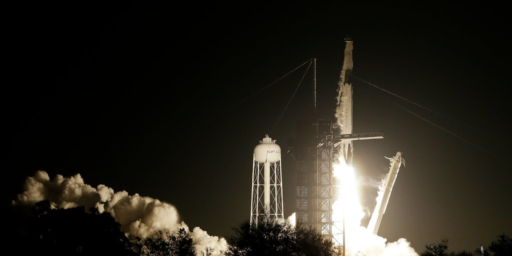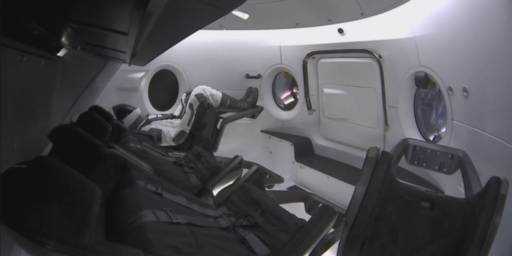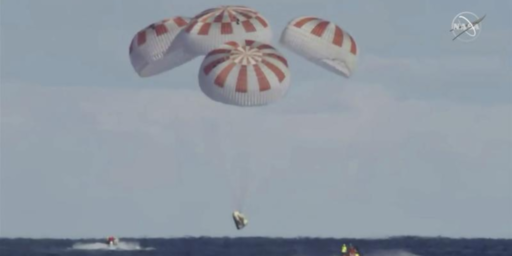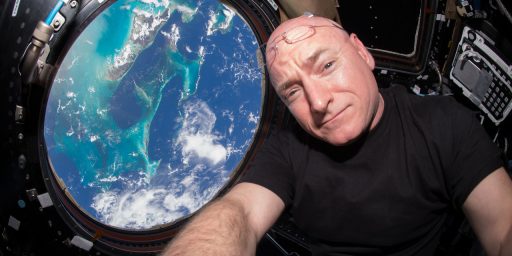NASA Wants To Pay You $18,000 To Stay In Bed For 70 Days
The ultimate dream job:
You could file this one under bizarre, but totally legit.
NASA is currently looking for volunteers to lie in bed for 70 days.
That’s right, you could get paid a total of around $18,000 for lying in bed, playing games on your phone, reading books, skyping with your friends and family, taking online classes - and even go on with your day job if you can get away with working remotely, so long as you don’t get out of bed for that entireduration.
And, for those with relinquished childhood dreams about being an astronaut, there may be an altruistic element to participating in the project: in doing so, you’re actually helping the country further conquer the final frontier – space. In a few years, when astronauts land on Mars, test subjects may be able to say they helped get them there. “Subjects in the study look at it as a way to help,” says Dr Roni Cromwell, senior scientist on the bed rest study. “In that what we eventually do will help astronauts maintain their health while in space.”
(…)
The purpose of the study is to research the effects of microgravity on the human body. The study simulates the effects of long-duration spaceflight by having test subjects lie in beds for the 70 day period. The beds are tilted head-down at a six-degree angle. According to Dr Cromwell, this tilt which causes body fluids to shift to the upper part of the body, sets off cardiovascular events that are similar to what we see in a space flight.
“And by putting someone in bed for a long time, there is also atrophy of the muscle and atrophy of bone density,” she explains.
When astronauts spend weeks and months floating around in space – they don’t need to use more than a fingertip to propel themselves across the room, so their muscles go on vacation – the atrophy described by Dr. Cromwell.
NASA calls bed rest studies such as these ‘countermeasures’, which are used to minimize the changes that occur to the body during spaceflight and to enable the return of normal body functions once back on Earth.
“Being able to test new ideas on Earth saves invaluable flight time,” says Joe Neigut, Flight Analog project manager at NASA’s Johnson Space Center in Houston. “What the bed rest does to their [test subjects] physiology and how the exercise countermeasures benefits their physiology helps us better prepare and protect astronauts when they are in space. In fact how it affects the physiology can be applied to everyone on earth.”
Depends on how comfortable the bed is I suppose.






My sister, age 30, just spend one month in bed due to an extreme case of cardiomyopathy and heart failure. While she is blessedly getting better now, when she left the hospital this week i was amazed to see how weak she was. While her exhaustion was, no doubt, due to her heart condition, her actual weakness was from the constant bed rest (she had a balloon pump, which meant she could not sit up by more than 15 degrees or so).
If a muscularly healthy 30 year old gets that weak after 30 days, I can’t imagine what it would be like doubling the time.
Do you get bathroom/shower breaks? Otherwise that’d be kind of “ewwww” by the end of the 70 days.
Pure torture. I wouldn’t do this for even 100x that amount. But for 1000x, maybe …
@Stormy Dragon: “Do you get bathroom/shower breaks? Otherwise that’d be kind of “ewwww” by the end of the 70 days. ”
I’ve read about that (‘Packing for Mars’) and they are serious about lying down 100% of the time. You get up to take a shower, and you’re fired.
One way to help astronauts maintain muscle integrity once on Mars is to design an environmental suit to be quite heavy to simulate earth styled gravity. Another more realistic method to use during the enroute phase and after arrival is a suit which employs nodes to provide light electrical activity to stimulate muscular activity.
“With whom?” strikes me as the pertinent question.
@Franklin: I think you are selling yourself a might cheap there Franklin.
I was once “confined” (I cheated) to a bed for a week in ICU and it drove me bonkers. As soon as they said I could get up, there was no part of that hospital I did not explore. They finally “threatened” to lock me up if I did not at least stay on my floor.
@OzarkHillbilly: I believe it – even the word ‘confined’ kind of puts me on edge.
Plus, I tend to get migraines if I sleep in. I don’t imagine if it would get better after 10 more weeks of laying down.
I will do this if NASA will let me smoke weed while I’m in bed
Hi there colleagues, how is the whole thing, and hat you
desire to say about this paragraph, in my view its in fact amazing in favor of me.
This guy has it right here on this: http://ynit.me/1b5Qu6X
Break it down and it’s not enough cash. Why no double it? It’s not like a toilet they use in space didn’t cost $500000.